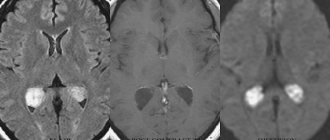: Reading time:
Check yourself with ten clear signs that your care and concern for your child does not prevent him from developing and becoming independent.
To understand the harm of overprotection, let’s imagine an adult:
- cannot find himself in life, his parents help him and get him out of unpleasant situations until his retirement
- believes that everyone is obliged to him and should by default
- too weak to decide for himself in life, to defend his position, opinion
- it is incredibly difficult for him to get down to business and finish it
This portrait can be drawn further, but it is already recognizable. The powerlessness of a child is a terrible picture for a parent. Of course, there are mothers and fathers who consciously want their child to remain dependent for life. But the story is not for them, but for those who are frightened by such a prospect.
The most difficult thing is for children whose upbringing included overprotection - excessive care in large quantities. Even traumatic events do not have such a detrimental effect on a person’s vitality as the habit of waiting for someone to solve all problems.
What to do to prevent a child from ever becoming independent
The consequences of overprotection in adult life are manifold: unfulfillment in life, a person’s weak “I”, low self-esteem, inflated expectations from oneself and from life, difficulties in acquiring skills, depression, difficulties in communication.
A person often does not notice his tendency to be overprotective, but he can learn to do so. Check yourself for these signs: each of them is an indicator that you are overprotective of your child.
You do not allow the child to make efforts and help without his request
I saw such an example. At a bus stop, a boy of two and a half to three years old is trying to climb onto a bench. Myself! Doesn't ask anyone. Mommy comes up with the question: “What are you doing?” The child admits: “I can’t climb.” “And it won’t work,” says his mother, joyfully picking him up by the armpits and sitting him on the bench. Everyone is happy.
If repeated regularly, this situation will most likely lead to atrophy of the child’s will and abilities. As a result, you can also get a strong charge of aggression and irritation, because independent action and effort are a need of a growing organism, necessary for survival. Such a need cannot be blocked with impunity.
Protect your child from any shocks, constantly regret
At an early age, at one and a half to three years, the child tries to be independent: he tries to open the door, insert the key into the lock, get out an interesting thing. When things don’t work out, she sometimes cries and becomes hysterical. In this case, the parents’ overprotectiveness manifests itself in the fact that they do the work instead of him so that the hysteria stops: they take out a toy from the shelf, assemble a complex construction set. Some parents begin to act proactively, and then the child grows up calm, joyful and without hysterics. An illusion of well-being arises.
Parents protect in different ways:
- They do not talk about sad or sorrowful events, so as not to traumatize the psyche. So parents can hide from their child for months or years that their beloved grandfather has died.
- They protect you from household chores and responsibilities: “He still has time to wash the dishes.” Apparently, they are afraid that the child will get tired of this task and in the future will not want to do anything around the house. Or, on the contrary, he will get attached to this business and become a cleaner.
- They do not allow the child to fall, make mistakes, or get bad grades at school. These are parents who are always at arm's length from the baby and manage to catch him before he falls; who will bring the child’s homework to perfection in order to avoid criticism and bad grades.
Awareness
It's a warm summer evening in a small southern town.
I am running. There are several cozy benches around in the cool shade of green foliage. Next to me is an acquaintance with whom I need to discuss matters. But I'm running. With arms outstretched forward, eyes wide and imagining the terrible pictures of falling from a height, I rush towards my daughter, who has just climbed up a very ordinary slide. I shout: “Don’t fall!”
And only then do I notice the puzzled looks of the grandfathers playing backgammon nearby. It is at such moments that you realize that you are doing something wrong in parenting. Everything suddenly fits into a single puzzle: fulfilling any requests of the daughter, even before she wants to ask for something, protecting her from any challenges, decisions, choices, risks and dangers. So, one summer evening I realized that my main problem in fatherhood was overprotection.
Are you afraid that your child will be offended or angry?
A colleague spoke about a mother’s overprotection of her son. Mom wiped her child's bottom at age 12. She did not consider this a problem, she was only worried that the child often freaked out and even beat her. When asked why she wiped the butt of a twelve-year-old boy, she confidently answered that he himself asked her. And if she refuses, he becomes hysterical. This reaction scared her.
Parents' fears that are passed on to children
Children often refuse to do things that don't bring them pleasure and blame it on their parents. The child doesn’t want to put away the dishes and starts to protest - the mother gives up and does everything herself. When a parent is afraid to refuse, the child gains power, and the demands become more insistent and more absurd each time.
Actively manage your child’s learning and monitor his interests
The book by psychologist-educator Lyudmila Petranovskaya “Secret Support” describes an experiment. The psychologist left the parent and preschool child alone in a room where there was a lot of interesting things - toys, manuals. Each pair's activities were videotaped, resulting in four groups of parents.
The first group of parents forbade their children to get up, walk around the room and touch other people's things.
In the second group, the parents themselves brought the child to toys, aids, and offered them games or activities.
Parents from the third group sat and silently watched as the children explored their surroundings.
In the last group, the parents themselves enthusiastically played, examined, studied things and did not involve the child in this process in any way.
Psychologists observed the children for some time after this experiment, and it turned out that children with parents from the fourth and third groups (parents who do not pay active attention to the child) develop best, and worse - with parents from the first and second. Moreover, in the first group the results were even slightly better than in the second, because while sitting the child can at least look at what he wants.
Diagnostics
Parents themselves are not bothered by overprotection, and a child until adolescence cannot objectively assess and understand that the model of his upbringing is filled with excessive care and control. Therefore, only specialists can assume and diagnose parental overprotection during the study of the emotional and personal sphere.
The following methods are used for this:
- Conversation. The psychologist talks with the parents, finds out the peculiarities of upbringing, asks about their concerns, complaints, and clarifies information about the diseases and characteristics of the child. The current picture helps determine the presence or absence of hypercontrol.
- Observation. A child under parental overprotection often has certain behavioral characteristics: stiffness, anxiety, obsessive movements of limbs, eyes or lips, reticence, avoidance of eye contact with adults.
- “Family Drawing” technique. Its use reveals overprotection if the child draws the dominant parent first, in the center and in a large size. He depicts himself somewhere nearby, but very small.
- Tests with interpretations. In such methods, the child deciphers the proposed pictures as a situation in his family, where dominance, guardianship and constant control prevail.
- Questionnaires. This is a method for parents, the results of which help to draw conclusions about the type of upbringing, parental attitudes and the degree of their distortion.
You leave your child the best piece of the pie
I recently saw this picture on a bus. A mother and a teenage boy, about fifteen years old, are standing. The mother talks loudly and kindly to her son, who has moved deeper into the bus and answers quietly, abruptly, but also kindly. Here a place opens up next to the woman, and she actively invites a boy to take this place. The boy hesitantly refuses, but quickly gives in and sits down. After all, who can resist an empty seat?
There are many negative consequences from this situation. For a parent, this is neglect of his needs on the part of the child. For a boy, his mother's overprotection will bring difficulties in making moral choices in the future. In adulthood, it is difficult for such a person to give up convenience, although at the same time he quietly loses much more valuable things: he values freedom, but continues to live with his parents; values decency and honesty, but spends money on comfort, pleasure and lives at the expense of others. This creates eternal dissatisfaction with oneself even against the background of external well-being, but also leads to actions that are condemned by morality and law.
Instructions: how to teach a child to handle money
Another situation: a mother wants to instill good taste in her daughter and provide her with a prosperous future. That's why she buys her daughter good clothes, but dresses poorly herself. Everything goes to the child. However, the girl resists: she tries to choose clothes that are more modest and cheaper, not fashionable, and refuses those that her mother imposes. This happens due to feelings of guilt, due to dishonest distribution of benefits.
Therefore, the attitude “all the best goes to children” is harmful. The child's pleasures should not infringe on the parent's comfort and needs, and privileges should be deserved.
What does overprotection lead to?
It has a number of negative consequences and affects all areas of life:
- Socialization. Adaptation to society slows down, and it is more difficult to establish contacts with peers. The children have impaired communication skills;
- Personal qualities. If you admire your son and indulge his whims, you risk raising a narcissist and self-centered person; you do everything for your daughter - you will raise an infantile personality who will not make a decision without you even at 50 years old;
- Self-esteem. As a result of overprotection, children develop inadequate self-esteem - underestimated or overestimated. In the first case, they are unsure of themselves, helpless, and lack motivation and aspirations. In the second, they consider themselves better than everyone else, brilliant, and expect recognition - problems begin when they do not receive from others what they received from loved ones;
- Formation of personality type. Such children are anxious. This condition is passed on to them by their loved ones. They do not take risks, they are afraid of everything, they are nervous, they give in to difficulties. This is not typical for children;
- Dependence on loved ones. Children under guardianship grow into helpless, dependent adults. They depend on their parents - they decide issues for them, manage their everyday life, know what and how is best;
- Narrow social circle. Not all children in care start their own families as adults. For many, their social circle is limited to their father and mother. At best, a couple of friends approved by relatives;
- Disorientation in adult life. A person does not know how to behave in difficult, non-standard situations, and cannot realize himself.
Behavior speaks of personal immaturity. Adults cannot find their calling, cannot build harmonious family relationships, their elderly mother and father pull them out of trouble, they cannot finish what they started. They believe that everyone owes them, and they blame everyone but themselves for their failures. These are weak and helpless people.
You are very worried and worried about your child when you are not around
Another sign of overprotection is when a parent worries about the child all the time. A friend of mine took her child with her everywhere - she always took her to work or left her with her grandmother, never alone. He could only walk on the playground with other children under her supervision. She made sure to attend meetings with her father because she did not trust him. Once we were discussing the army and the life difficulties that everyone has. She said that if she could tie the child to her with a rope, she would do it.
Home alone: should you leave your child alone at home?
Needless to say, her son was incredibly infantile. At the age of 10, he seemed almost mentally retarded: he was lethargic, spoke quietly, could not decide what he wanted from food, and dreamed of going to Eurovision, although he had never performed or played music in his life. To my surprise, he mastered the school curriculum normally; according to tests, his intelligence, although not brilliant, was normal.
Classification of parental overprotection
There are 4 types of excessive care towards the child.
Two opposites
These include conniving and dominating overprotection.
The first is manifested in the lightning-fast satisfaction of all wishes, demands, and whims. These guys have inappropriately high self-esteem, they grow up to be narcissists, and demand the same attitude from others. It is difficult for them to adapt to society, since everyone’s admiration and indulgence in whims is limited only to their family.
Dominant - the opposite style of raising children. Overprotection manifests itself in the suppression and “breaking” of a small person. Education is based on rules, prohibitions, and a strict system of punishments. He is criticized, humiliated, controlled, distrusted. As a result, a hunted person grows up with inadequately low self-esteem and a bunch of complexes.
Inert overprotection in the family
The child has grown up and can do a lot on his own, but they continue to treat him like a baby - out of inertia. For him, they put away the toys, set the table, wash the dishes, dress him, and wipe his butt. This slows down development - physical, mental, and interferes with socialization.
As the child grows up, he needs to delegate more responsibilities and be given new areas of responsibility.
The basis of such upbringing is the desire of parents to assert themselves. If there is no other way, they do this at the expense of guardianship over a helpless child. This increases their status in their own eyes and gives them a feeling of recognition and superiority. The son or daughter grows, becomes more independent, acquires new skills and knowledge, grows personally - the father and mother perceive this as a challenge and try to suppress these changes.
Demonstrative type of overprotection
The basis of upbringing is the desire to arouse the admiration of others - the child’s talent, good manners, skills, and successful studies. Parents are obsessed with public effect.
This type of guardianship is found in single-parent families or among ambitious, domineering women with hysterical traits. They crave recognition, and offspring are a way to get it. The mother lives by the child’s achievements: she focuses attention on them, highlights them, and creates for him the image of a genius, a “star.” For a mother, her daughter or son is ideal, she lives for him and his achievements. Mistakes and defeats are hidden and not forgiven - such women depend on the opinions of others.
“Lay out the mattress” and solve the child’s problems for him
A few years ago, there was a series of news discussions on the Internet about a wealthy father who bought his son a car. The first time my son was caught drunk driving. My father sorted it out, but my license was not taken away. The second time, the son had an accident and crashed the car. Thanks to the father's connections, the court recognized that the accident was not the fault of the son. A man bought his son a new car - more expensive than the previous one. In his opinion, his son should have taken care of his expensive car and driven it more carefully. My son hit a man with this car. The father once again saved his son, his license and car were in place. It ended with the son having an accident and falling to his death.
Often overprotection of a child means that a person does not feel the real consequences of what he does. The parent protects the child from problems now, but prevents him from learning responsibility and cause-effect relationships: do “A”, get “B”. However, you can’t argue with death, you can’t persuade it or bribe it.
How to avoid becoming a helicopter parent - tips for raising a healthy personality
Here are 12 great techniques that will help you get rid of overprotective behavior and allow your child to develop a sense of independence, self-control and self-confidence.
- Assess your child's level of maturity and responsibility. Regardless of age, the more stability and responsibility he shows, the more freedom he can be given to choose his own priorities and make his own decisions.
- Consciously stop interfering in your child's life and demonstrate trust. It is clear that you sincerely and with all your heart love your child and want the best for him. And it is very difficult and even scary to step aside and give him free space. Accept that sometimes kids fail, sometimes they make bad decisions, and sometimes they don't do what you think is right. This is an important part of child development.
- Maintain a balance of personal time and time spent with family. Avoid rigid planning. Communicate more often. Encourage your child to tell you what is happening in his life, what he feels, thinks and what he dreams about. Stick to a specific schedule, but be flexible to accommodate changes and his opinions.
- Outline a plan to develop your child's autonomy and independence. Continue to show interest and support. You should teach and guide your child, not regulate his life and manage his interests and goals. Take care of your child’s safety, but do not forget to prepare him for independent work and life.
- Allow your child to make decisions, solve their problems and take risks. These are perhaps the most important abilities that any person should have. Give your child the opportunity to learn from their mistakes.
- Teach your child to accept the consequences of his choices and actions. Define boundaries and limitations. Don't deal with the consequences of bad behavior and mistakes on your child's behalf.
- Challenge your own and others' definitions of success. Life, growth and achievement are not just about grades and medals. Do not impose your ideals and interests on your child. Let children determine their own values and goals.
- Don't let your emotions get the better of you. Take a step back when you feel the need to intervene. Don't react impulsively. Discuss issues openly with your child. Listen to his explanations and ideas.
- Regulate your fears. It can be very difficult, but depression, anxiety, anger and other negative emotions are contagious and quickly spread to those close to you. As much as possible, keep negativity away from your children, even if you are going through a difficult time. Become a source of positive energy.
- Monitor your child’s online activities and use of social networks, but do this carefully and only when necessary. Assess your child's level of responsibility and talk about potential dangers that may lurk in cyberspace. Describe real or hypothetical situations. Tell us how to avoid them. Encourage them to ask for help if needed.
- Be objective. Put yourself in the child's shoes. Then consider the situation from a disinterested person's point of view. Answer the questions: Does the child have a logical explanation for this behavior? What are the risks? What is the best way to deal with a problem or disappointment? What experience will the child take from this situation?
- Enjoy your children and spend more time together. Love and accept them unconditionally. Making mistakes is part of growing up. Teach your child to acknowledge them and move on.
As much as you can afford it to feel comfortable, try freer parenting. Encourage your children to be independent and have limited control. Also, always encourage them to ask you for help and advice. Guide and teach, rather than restrict and force. Balance the freedom and loosen the rules depending on the level of responsibility and maturity of the individual child.
It’s easier for you to do it yourself than to wait for your child to do it.
This is a common mistake among adults, because the child performs the action either slowly or “wrong.” I really want to do it for him, so that it is faster, more accurate, more correct. Especially in a situation where you have to hurry. As a result, the child loses the opportunity to take responsibility for the result and ceases to respect the adult.
During classes with a children's group, I somehow realized that every time after an exercise I set up chairs alone, and the children ran away merrily. I began to notice how many little things I did for the children: handing out scissors, laying out paper, collecting trash. And this had a negative impact on discipline in the group. When I transferred this work to the guys, disciplinary issues disappeared by themselves.
You do not trust the child’s capabilities and strengths
Here is another case of parental overprotection from my practice. A girl appeared in the preschool group, she looked very fragile, gentle, soft and sweet, I wanted to protect her. Mom complained that she was fearful, anxious and fantasized a lot.
During classes, I began to pay attention to the fact that I was paying attention to her and helping her more than other children. It always seemed to me that if this was not done, then she would not be able to cope on her own: she would not be able to lift the chair and move it, or knead the plasticine. The problem with fearfulness began to be quickly resolved when I shared with my mother my feelings and the desire to help the girl that arises next to her. Mom admitted that she felt the same way. When they stopped caring for the child, the girl quickly became combative, strong-willed, and no longer looked fragile.
What should anxious parents do?
Fragile appearance occurs:
- because of illness
- fragile, weak constitution
- difficult birth
- mature parents
- ideas of relatives (especially grandmothers) about thinness as a disease, ill health
- features in emotional and intellectual development (developmental delays, autism spectrum)
Prevention
To prevent the occurrence of overprotection, parents need to critically assess their psychological state: monitor their fears and anxieties, avoid transferring their complexes and problems from childhood to their child.
Moms and dads should be well aware of the features of child development, in particular, what the zone of proximal development is. On its basis, you can build productive relationships and allow the child to master the necessary social and everyday skills, as well as delegate more and more responsibilities to him, reducing the degree of his participation.
You feel resentful that your efforts and contributions are not appreciated
- “I spent the whole night sewing a Harry Potter costume, and the child didn’t even say “thank you”.”
- “At the table at his birthday party, I tried to entertain his friends, and he sat like a beech.”
- “I was preparing for her graduation, and she went there as a deep favor.”
- “I bought strawberries to please my daughter, but she ate them all, leaving nothing”
This is how resentment towards children usually manifests itself.
If you have discovered such feelings in yourself, you have already begun to struggle with overprotection. This means that you know how to notice an imbalance in the “take-give” balance in a relationship, this is important.
Sometimes parents consider the feeling of resentment unworthy of themselves and brush it off with attitudes: “all children are like this,” “he will outgrow,” “then he will understand how much I love him,” “you need to show care and forgive so that the child learns to be caring.”
In fact, the child does not even notice the parent’s contribution and efforts; he grows up in the belief that all benefits come easily.
Signs of overprotective parents
Overprotection in parents can be determined by many signs:
- an adult does not give his son or daughter a choice, but always makes it himself;
- everything the baby offers is questioned or rejected;
- the child does not know how to do homework on his own;
- parents determine the social circle of their son or daughter, choose friends for him;
- the baby is protected from any shocks and difficulties;
- adults do not trust the child’s strengths and do not believe in his capabilities.









